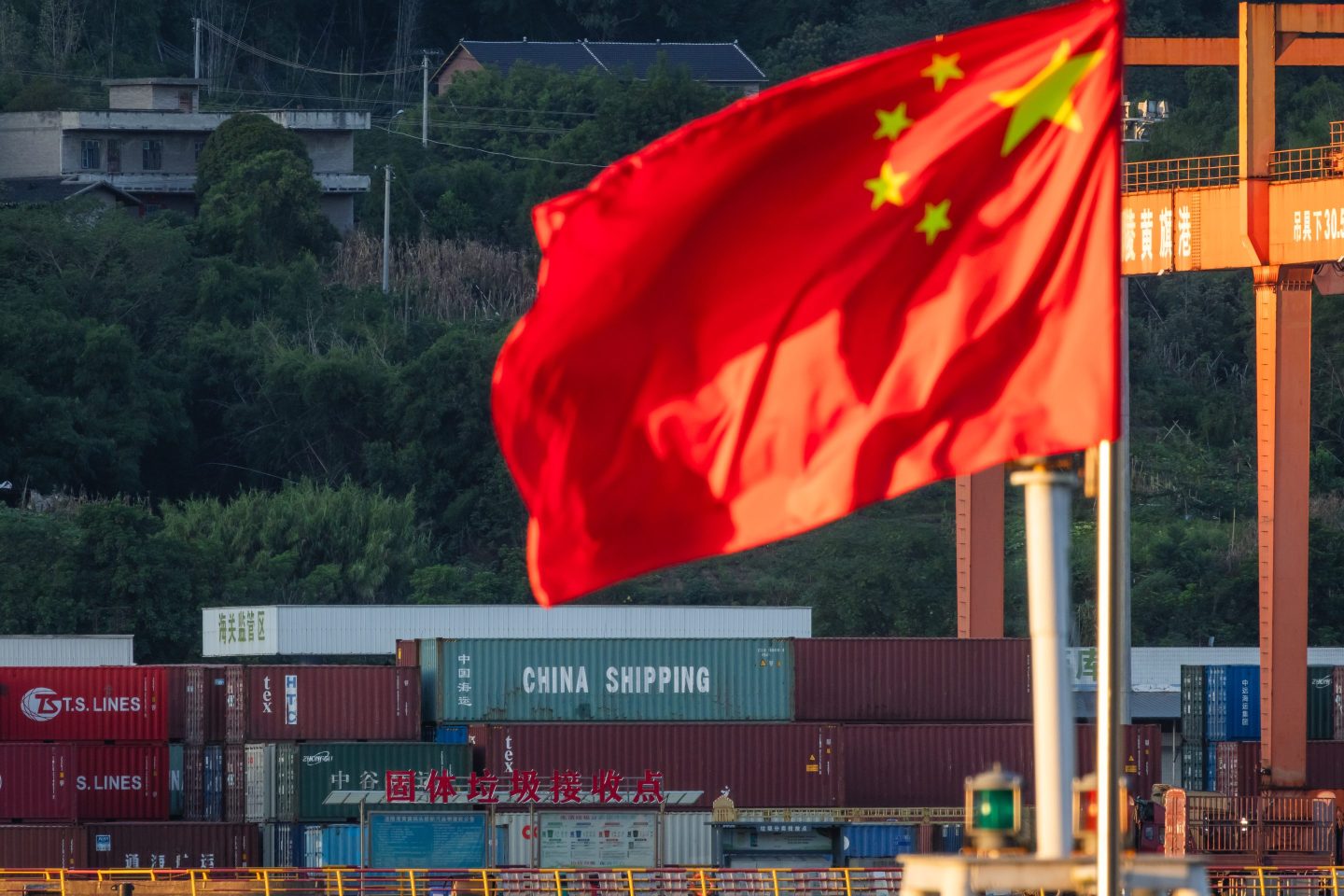Russian President Vladimir Putin said in a meeting last week that despite the EU’s recently announced embargo on Russian energy, it would take years before the West stops importing Russian oil and natural gas.
“In terms of rejecting our energy resources—this is unlikely over the next few years,” Putin said in a meeting with young entrepreneurs, Russian media outlet the Interfax reported.
He asked the crowd rhetorically what is likely to happen and then asserted that the global oil supply will decrease and prices will rise, which means oil companies—and Russia—will see an increase in their revenue.
“Everyone sees this, everyone understands this,” Putin said.
Putin is correct in his economic assessment, at least for now. Oil prices have risen around 60% this year alone, according to OilPrice.com, and gas is being traded at a 13-year high. That has translated to oil companies pocketing record profits in the first quarter of 2022. And despite any fears of being seen as financing the war in Ukraine, countries worldwide have also been buying Russian oil at record rates to capitalize on the price gap between Russian crude and world prices.
Here are three ways Russian oil is flowing that show Putin might still have buyers for his oil long long after countries shun the Russian resource.
The EU is still buying Russian oil
While the EU agreed to cut 90% of Russian oil imports by the end of the year in late May, the union is still currently importing more than half of all Russian oil exports.
The EU accounted for 61% of Russian oil and gas imports in the first 100 days of the war, buying around $59 billion worth of oil since Russia first invaded Ukraine, according to a new report out Tuesday by independent research group the Centre for Research on Energy and Clean Air (CREA).
The report found that Russia earned nearly $100 billion from its exports of oil and gas during the first 100 days of the war, which supports previous estimates from Bloomberg Economics that predicted Russia is likely to bring in $285 billion in oil and gas revenues this year—20% more than the $235.6 billion the country brought in last year.
While Russia’s oil revenues have been steadily falling since March, when many countries first decided to shun Russian energy after it invaded Ukraine, the increased demand and price of fossil fuels have still created a windfall for Russia and led to record revenues. The price of Russian oil, while still heavily discounted from international prices, is still 60% higher than Russia’s average export price last year, the CREA report found.
While countries like Germany, the Netherlands, and Poland have been trying to wean themselves off Russian energy, France increased its imports over the last year, according to the CREA report.
And when the EU agreed to cut 90% of Russian oil imports, it left an exception for oil imported through pipelines, which would allow Hungary, Slovakia, and the Czech Republic to still get Russian oil through the Druzhba pipeline. By the end of the year, the EU will have to figure out where it will source 2.2 million barrels of oil each day, which used to come from Russia, according to the International Energy Agency.
India and China are increasing their purchases of Russian oil
While countries in the EU are scrambling to find their oil from somewhere else, India and China have no intention of slowing down their purchases of Russian oil—especially when the prices are comparatively low.
India is now buying up 18% of all of Russia’s oil exports, according to the CREA report. Indian refineries are purchasing more than 40 million barrels of oil a day on average since the start of the Ukraine invasion and early May—20% more than the total amount of oil flows between the two countries for the whole of 2021, Bloomberg reported, based on Indian trade ministry data.
India has also been trying to negotiate deeper price cuts on Russian oil, aiming for deals as low as $70 a barrel.
Meanwhile, China has outpaced Germany as the largest buyer of Russian oil, buying $12.6 billion worth of oil since the war began. It has also been reported Beijing opened discussions with Moscow to buy additional supplies of oil, in a sign that China was strengthening its energy ties with Russia, as the country struggled to off-load its oil amid the sanctions.
Hungary is making a lot of money off Russian oil imports
Meanwhile, one country has covertly raked in a hidden profit as the war on Ukraine rages on.
Hungary is set to make $600 million in yearly profits through a tax on Russian oil, according to a note from research service Eurointelligence published on Tuesday, claiming it was “not a bad money spinner for an economy that size.”
The note, reported by the Guardian, says that the Hungarian government, which opted out of the EU embargo on Russian oil, introduced a 25% windfall tax on all imported Russian oil in the country. Refineries in the country importing Russian oil—due to the considerable difference in price between Russian crude and Brent crude—have helped Viktor Orbán to pocket a portion of the proceeds of importing Russian oil.
“[Viktor Orbán’s] government can benefit from both higher oil prices and continued shipments of Russian crude by pocketing some of the proceeds, at the expense of everyone else in the EU. What reason could he have to back down on this?” Eurointelligence said.
Sign up for the Coins2Day Features email list so you don’t miss our biggest features, exclusive interviews, and investigations.












